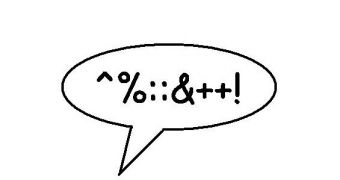Russia is really waging an all-out war to protect children from harmful influences or, at least, that’s what a new proposed law would aim to accomplish by banishing all swear words online, particularly on social media.
State Duma Deputy Yelena Mizulina, who is also the chairwoman of the Committee on Family, Women and Children, argues that, because of how many curse words are used online, children grow up to think that profanity is norm.
It’s not: and the ban should help show that, the English version of Pravda informs.
As the proposed law stipulates, sites that contain such offensive words, be they forums, websites or social networks, and refuse to eliminate them within 24 hours following a warning, will be included on the government’s blacklist.
Mizulina’s proposal already has many backers, Moscow Regional Bar Association, PhD, Associate Professor Sergei Smirnov among them.
“I have not seen anything like this in our laws. Foul language is obscene vocabulary, which is not common to use in communication and in business relations. When people express their thoughts or emotions with the use of profanity, many are offended by it,” Smirnov says.
“Obscene lexicon is equated to disorderly conduct, there is an appropriate article in the Code of Administrative Offences,” he adds.
Because language and communication are evolving and considering that offensive words are not condoned in real life, it’s time to create legislation that would also cover what happens online, where most teens and young adults spend half their life, he continues.
Those saying that such a ban would infringe upon human rights clearly have no idea what they’re talking about or they’re not thinking about the children, he says.
“Obscene language offends both children and adults. A ban on its use is not an infringement of human rights. This is a direction towards a civilized lifestyle. If we do not use foul language in real life, then why do we use it on the Internet? Deputy Mizulina calls to protect vulnerable layers of the population – particularly children. I think that this initiative should be supported,” Smirnov continues.
Also to protect children from harmful influences, you can now be jailed in Russia for pushing “gay propaganda” because gay behavior is something learned.
Russia also passed SOPA, effective as of August 1, 2013.

 14 DAY TRIAL //
14 DAY TRIAL //